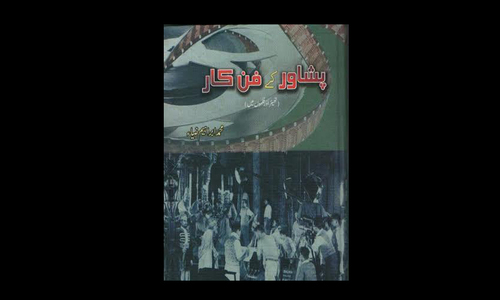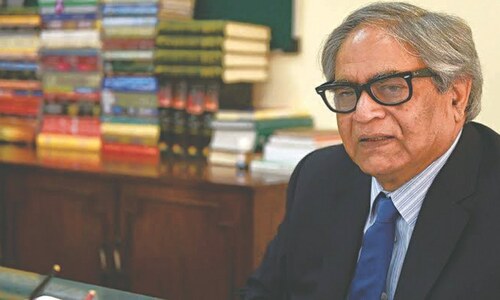 |
Agha Fazal Ali Shah set up the first theatre in Peshawar in 1915 and staged successful Urdu plays. Qamar Sarhadi, Qazi Rafiq, Harbans Lal, Abdul Sattar, Habib Sarhadi, M. Aslam, Miss Mubarak, Zuhra Madhvi, Master Fazal Elahi, Miss Almas, Bahadur Ali and Andaleeb Durrani were some of the theatre actors who garnered widespread fame. In the early years of the 20th century, a mobile theatre used to stage plays in open spaces. In the 1920s a regular theatre hall outside Bajauri gate in Peshawar was built and staged plays till 1942. Laila Majoon and Dharti Mataa were among the most popular plays in which Master Khuda Bakhsh played lead roles.
In 1913, the first full-length silent feature film, Raja Hariash Chander, was screened in Olympia cinema in Mumbai and Alam Ara was the first sound or talking feature film. The ‘talking movies’ brought complete silence to the once noisy theatres of Peshawar as most of the stage artists thronged to Mumbai for a brighter film career. Prithviraj Kapoor, the father of Raj Kapoor, Wazir Mohammad Khan and Mehboob Khan were from Peshawar who made it in Bollywood film industry. Wazir Mohammad Khan had sung for Alam Ara. The first screening of a sound film in Peshawar was at the Imperial Theatre in the Qissa Khawani Bazaar in 1926.
Madhubala (Mumtaz Jehan Begum) belonged to the Yousafzai tribe of district Swabi and was a fluent Pashto speaker. She began her acting career at the age of eight in the film Basant. Bollywood superstar Amjad Khan, another famous Bollywood actor, used to visit his paternal grandparents in Peshawar till 1965. Superstar Shahrukh Khan’s father Taj Mohammad Khan was also from Peshawar. He moved to Delhi after Partition while his brothers stayed back.
Khan visited Peshawar several times during his school years. Similarly, Dilip Kumar and Raj Kapoor’s families have also visited Peshawar on more than one occasion too as this is where their ancestral homes were.
Even after Partition, the culturally rich and fertile soil of the historic Peshawar city in particular and Khyber Pakhtunkhwa in general produced noted artists of theatre and film who contributed immensely to the Pakistan film industry. Rangeela, Mohammad Qavi Khan, Firdous Jamal, Badar Munir, Suriya Khan, Asif Khan, Yasmin Khan, Ajab Gul and Arbaz Khan are just a few.
Peshawar ke Fankaar is an interesting read for enthusiasts of the history of cinema and theatre. Zia says that there are more than a hundred artists, singers and music composers from Khyber Pakhtunkhwa who have contributed to Bollywood but unfortunately, he could only gather verifiable information about some of them.
Peshawar ke Fankaar
(History)
By Mohammad Ibrahim Zia
Tajuddin Publications, Peshawar
563pp















































Dear visitor, the comments section is undergoing an overhaul and will return soon.